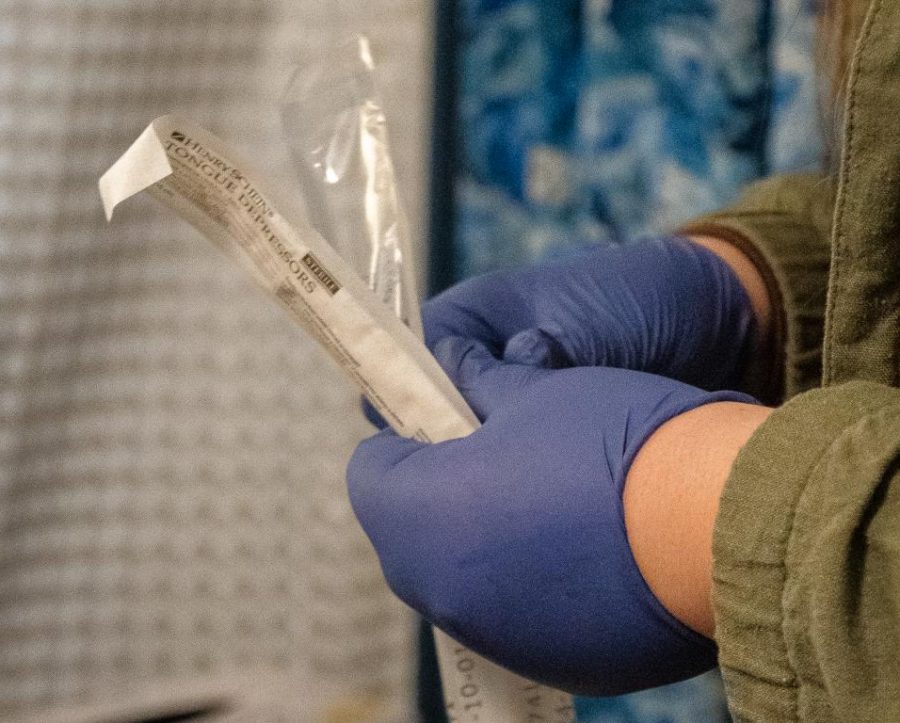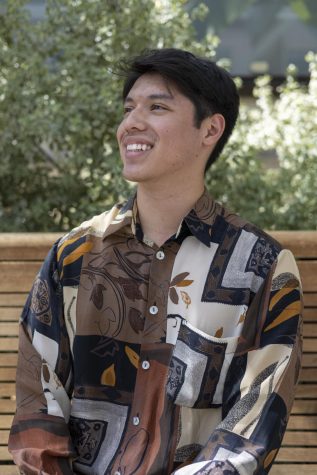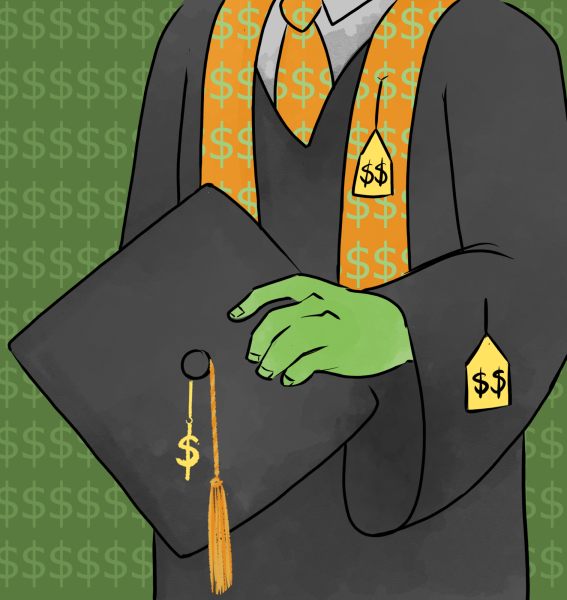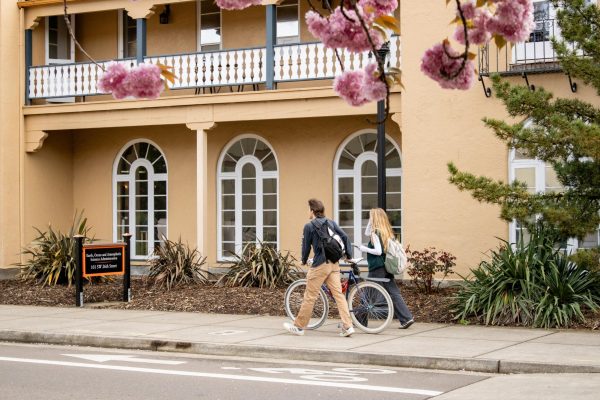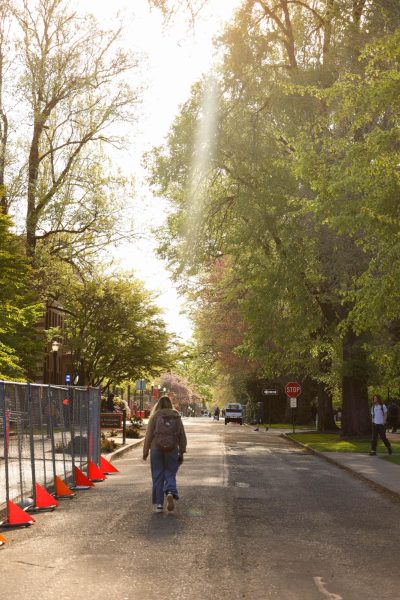Modern Issues Scrutinized Accordingly: Vaccine, natural immunity should end masking
Student Phlebotomist Barbara Miller prepares a COVID-19 Rapid PCR test in the testing tent behind Student Health Services on Nov. 8, 2021. SHS conducts COVID-19 testing for both vaccinated and non-vaccinated students.
November 29, 2021
 Editor’s Note: This column does not represent the opinion of The Daily Barometer. This column reflects the personal opinions of the writer.
Editor’s Note: This column does not represent the opinion of The Daily Barometer. This column reflects the personal opinions of the writer.
Masking may be on its way out on campus because those with natural and vaccine-based immunity to COVID-19 are protected from the virus and should no longer need to wear masks.
According to Oregon Health and Science University’s COVID-19 modeling, “given the amount of people already vaccinated and infected,” there are fewer people susceptible to infection, so it’s less likely cases will surge and cause a holiday spike this year.
Herd immunity is the point at which viral infections are naturally contained because the statistical probability of encountering another person who is susceptible to the infection is so low.
A combination of both naturally-gained immunity and vaccine-based immunity creates herd immunity.
According to the Mayo Clinic, immunity is important because it protects the individual and also people around them—especially those who cannot be vaccinated, like newborns or immunocompromised people.
Trying to achieve herd immunity through natural infection means that enough people would need to recover from COVID-19 and develop protective antibodies against future infection, according to the Mayo Clinic.
Herd immunity could make the spread of COVID-19 more unlikely, though the Mayo Clinic notes reinfection is still possible for people who have had COVID-19.
An article in The Lancet Microbe, a journal that publishes microbiology-focused clinical research, found that immunity after recovering from a natural infection lasts anywhere from three months to five years, similar to vaccine immunity.
Thus, I believe there is no COVID-19-based reason for those who have natural or vaccine-based immunity to wear masks.
The Mayo Clinic estimates 94% of the population must be vaccinated to achieve herd immunity. Currently, Oregon State University is at the exact point we need for herd immunity: 94% for students and 96% for staff members, according to OSU’s COVID-19 Safety & Success site.
Director of the OSU Center for Global Health Chunhuei Chi said masking at this time is a necessary measure.
“At the same time, [OSU] should be responsive to the pandemic conditions,” Chi said. “When the pandemic conditions improve… some of these measures can be relaxed.”
Improved pandemic conditions, among other things, could mean a low number of weekly confirmed cases or a higher proportion of the population being fully vaccinated.
“The university also strongly believes that the use of face coverings and being vaccinated remain to be highly important and effective tools to help prevent the risk and spread of COVID-19,” said Steve Clark, vice president of University Relations and Marketing. “OSU will consider its face covering and vaccination requirements as health conditions improve and as local, state and federal requirements are altered.”
After spending the past year getting vaccines distributed across the country and reopening schools in Oregon, we should leave the COVID-19 pandemic behind in 2021. 2022 is a time for a fresh start and hopefully natural and vaccine immunity can put us in position to do just that.
Until herd immunity is reached—either through natural infection or vaccination—we will need to continue to abide by mask mandates both on and off campus.
“Until further notice, we plan to maintain OSU’s current practices to contribute to COVID-19 wellness in the university and surrounding communities,” Clark said.












































































































